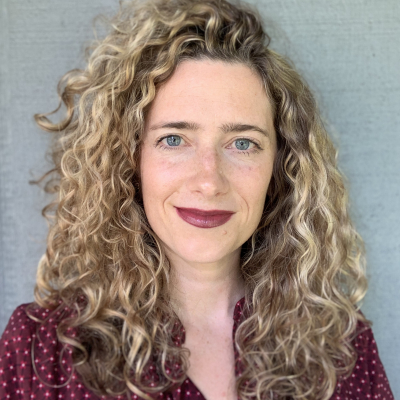Kathryn House, B.A. 2003
Asst. Professor of Leadership Studies and Practical Theology, Meadville Lombard Theological School – Chicago, IL
2003 Major: Religious Studies
How has being a Religion graduate from Duke helped shape you personally and/or professionally?
"I was raised in a fundamentalist Christian tradition - a pretty conservative version of the Southern Baptist Convention - in western North Carolina. Duke and Duke's Religion Dept. blew my mind. I wish every day I could go back and take classes again, without the stultifying fear of my youth, and with this past decade of my own experience and learning. Most of the time I was a student, I was sure I was learning things that would send me straight to hell. It is what it is, and so many folks I meet who are not in religious scholarship and about my age had similar experiences. But I also know that being a student in the Religion Dept. with my tremendous fears and with very few skills to be a college student is also part of my story. I am so glad for the chance to broaden my world. It was terrifying then, but it laid the foundations for my friendships, my doctoral work, and now my work as a theologian, professor, and pastor. It is critical to the empathy I try and show my own students when they come to class with their doubts and questions about God, themselves, and the world. They can only come with what they have. We teach one another. They bring such gifts to me, too, and I am lucky to learn from them. I think the college experience is so different now - less mystifying - but I did not understand what it meant to have an advisor, and perhaps, I had an advisor who was pretty classically trained in advising. We only met once, and he asked me why I was having such a difficult time in a major that wasn't that difficult. Not the most constructive advice or observation. I did ok for myself - PhD in Theological Studies, ordained, etc. - but I try to keep in mind how I work with students who are struggling. I ask how things are going and how I can help. Most of the time, students can tell me, and we can work together to name some things that could be helpful in difficult times."
What advice would you give students in Duke's Religion programs?
"First, take any class with Dr. Jennifer Knust! Second, don't be afraid - of readings, opportunities, people, ideas, etc. Ideas can be scary, and some of you might be from places where people have told you that people who believe differently than you are your sworn enemies. Read anyway, talk to folks anyway, make some new friends. Third, ask questions. If you don't understand what a monograph is, ask. If you don't know what "peer review" means, ask. If you don't know the words a professor uses, look it up on Wikipedia or ask your professor or a classmate. It's OK not to know. Fourth, we need you! Seriously, the world needs your compassionate and critical reading, your creativity, your commitment, your passion for studying religion and being transformed religious person because of what you study. Please keep taking classes and pushing the envelope."

